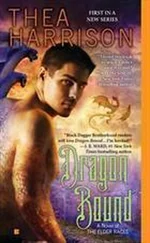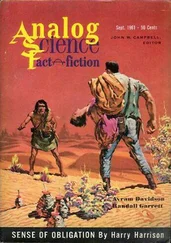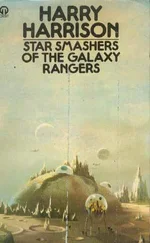M Harrison - Viriconium
Здесь есть возможность читать онлайн «M Harrison - Viriconium» весь текст электронной книги совершенно бесплатно (целиком полную версию без сокращений). В некоторых случаях можно слушать аудио, скачать через торрент в формате fb2 и присутствует краткое содержание. Жанр: Фэнтези, на английском языке. Описание произведения, (предисловие) а так же отзывы посетителей доступны на портале библиотеки ЛибКат.
- Название:Viriconium
- Автор:
- Жанр:
- Год:неизвестен
- ISBN:нет данных
- Рейтинг книги:3 / 5. Голосов: 1
-
Избранное:Добавить в избранное
- Отзывы:
-
Ваша оценка:
- 60
- 1
- 2
- 3
- 4
- 5
Viriconium: краткое содержание, описание и аннотация
Предлагаем к чтению аннотацию, описание, краткое содержание или предисловие (зависит от того, что написал сам автор книги «Viriconium»). Если вы не нашли необходимую информацию о книге — напишите в комментариях, мы постараемся отыскать её.
Viriconium — читать онлайн бесплатно полную книгу (весь текст) целиком
Ниже представлен текст книги, разбитый по страницам. Система сохранения места последней прочитанной страницы, позволяет с удобством читать онлайн бесплатно книгу «Viriconium», без необходимости каждый раз заново искать на чём Вы остановились. Поставьте закладку, и сможете в любой момент перейти на страницу, на которой закончили чтение.
Интервал:
Закладка:
After I have looked in the other room, I thought, and found somewhere to put my things, I will go to sleep, and perhaps wake up happier in the morning. After all, I am here now. So I put the book aside and turned the key again in the lock.
When he first fell in love with Vera Ghillera, my uncle had had the walls of this room painted a dull, heavy sealing-wax red; at the window there were thick velvet curtains of the same colour, pulled shut. Pictures of the ballerina were everywhere-on the walls, the tables, the mantelpiece- posing in costumes she had worn for La Chatte, The Fire Last Wednesday at Lowth, and The Little Humpbacked Horse -painted with her little chin on her hand, looking over a railing at the sea, smiling mysteriously from under a hat. The woman herself, or her effigy made in a kind of yellow wax, lay on a catafalque in the centre of the room, her strange, compact dancer’s body naked, the legs parted in sexual invitation, the arms raised imploringly, her head replaced by the stripped and polished brown skull of a horse.
In this room my Uncle Prinsep had hidden himself-from me, from my mother, from Madame de Maupassant and her set, and finally from Vera Ghillera the dancer herself, at whose feet he had sat all those years. I closed the door and went to the window. When I pulled back the curtains and looked out I could see the brick walls of the asylum, tall, and finished with spikes, washed in the orange glow of the lamplight, and hear the distant, ferocious cries of the madmen behind them.
It was dawn. The Mari-dancers were long gone, off to Shifnal with their horse; and light was creeping down Henrietta Street like spilled milk between the cobbles. The sin-eater coughed and cleared his throat, yawned.
His energy had left him in the night, draining his eyes to a chalky blue colour, the colour of a butterfly on the cliffs above the sea. He let his hands fall slackly in his lap and looked at the old man, who was asleep by the hearth with his mouth open. He looked at the surviving daughter, staring intently at the table then scratching patterns on it with a spoon, tongue in the corner of her mouth. He noticed the old man’s wife-laying the new fire in the grate, filling the kettle with water, making ready for the great meal of fish and potatoes which would be eaten later in the day-listening serenely to him as she went about the work, as if this were a story, not the bitter facts of his existence.
“I left Viriconium after that,” he told her, “for the deserts in the North; and I never went back there.” He moved his shoulders suddenly, irritated perhaps because he could no longer make these events clear enough to impress her, and he was impatient with himself for continuing to speak. “Do I miss it? No: nor Sour Bridge, with its dull farmers treading mud in the shuttered drawing rooms.”
Frost, fog, the smell of the distant shore; dawn creeping down Henrietta Street like milk. He could hear the people raking up their fires, uncovering the mirrors and birdcages. They rubbed their hands briskly as they looked out at the morning. “If the wind changes later we shall have a fine day.” At last they could shut the doors and get a bit of warmth! The little dead girl lay safely on the blue and white cover; it remained only for someone to eat the salt.
“One thing is odd, though,” he said. “When I sat in my uncle’s rooms and looked back over the decisions which had led me there, I saw clearly that at every turn they had been made by the dying and the dead; and I swore I would leave all that behind me.”
He stared for a moment almost pleadingly at the woman.
“As you see, I have not.”
She smiled: her child was safe; its soul was secure; she was content.
“That was where I first ate the salt,” he said bleakly. “It lay on her breast as surely as it lies now on your dead daughter’s. I don’t know why my uncle put it there for me to find.”
Later in the morning a wind from the land got up and blew light dashes of rain across the windows, but they were soon gone, and it was a fine day. Full of potatoes and fish, tired perhaps but comfortably settled in the stomach, the sin-eater picked up his bag and swung it over his shoulder. He had taken his money and put it in his pocket. Behind him at the trestle tables in the street he could hear laughter, the clatter of plates, the beginnings of music. He breathed deeply, shrugged, made a gesture with his hands, all at once, as if to convey to himself his own sense of freedom.
He was not after all that boy from Sour Bridge, or his Uncle Prinsep. A stocky, energetic man of middle height, he whistled off down Henrietta Street, ready to walk as far as he could. He looked inland, at the hills looming through squalls of rain. Soon he would climb up among them and let the wind blow those clean, childish little sins out of him and away.
LORDS OF MISRULE
“Aid from the city is our only hope now,” the Yule Greave said, looking away over the empty moorland and rough grazing seamed with tree-filled cloughs.
He was a tall man, fortyish, with weak blue eyes and a straggle of thin blond hair, who breathed laboriously through his mouth. Under the old queen, who had given him the house and the pasture that went with it, he had been known as a fighter. Every so often he would look around him as if surprised to find himself where he was, and his lower lip trembled if he talked about the city.
To give him time to catch his breath I stopped and looked back down at his house. It was built on a curious pattern like an ideogram from one of the old languages, ramified, peculiar. Much of it now lay abandoned and overgrown in a tangle of elder and hawthorn and ivy. Flung out from it were four great stone avenues, each a mile long. I wondered who had built them, and when. It seemed a pointless act out here.
“I’ve been forced to grub up pavements,” he said. “Knock down a wall here and there. But you can see what it was like.”
There were deep muddy furrows in the gateways where the stone carts went in and out. The wind came in gusts from the south and west, bringing a rainy smell and the distant bleat of sheep. The dwarf oaks on the slopes above us shifted their branches uneasily and sent down a few more of last winter’s brownish withered leaves. One of the little grey kestrels of the moorland launched itself from some rocks above us, planing downwind with its wingtips ragged against the racing white clouds; it hovered for a moment, then veered off and dropped like a stone onto something in the bracken below.
“Look!” I said.
The Yule Greave stood wiping his face and nodding vaguely.
“To tell you the truth,” he said, “we never thought they would come this far. We expected you to stop them before this.”
I breathed in the smell of the bracken. “This is such a beautiful valley,” I said.
“You’ll be able to see the whole of it soon,” the Yule Greave said. He started up the slope where it steepened for its final climb to the rim of the escarpment, following a soft, peaty sheep-trod through the bracken. He placed one foot carefully and heavily in front of the other, grunting at the steeper places. “I’m sorry to bring you all this way,” he said. “I don’t expect you’re used to this sort of thing.”
“I’m not tired,” I said.
If I had been cold, he hardly noticed. He laughed unoffendedly.
“They’ll want a report from you,” he said. “Up here it’s easier to appreciate the scale of the problem. As a military man you’ll want to be able to judge for yourself, and not rely on the ideas of an old cutthroat.”
We climbed the last few yards to the little outcrop, and at the top, when I turned, the spring sun had come out briefly; I could feel it like a poultice down the side of my jaw. Sweat poured down the Yule Greave’s forehead and into his eyes. He put one hand against the rock to steady himself.
Читать дальшеИнтервал:
Закладка:
Похожие книги на «Viriconium»
Представляем Вашему вниманию похожие книги на «Viriconium» списком для выбора. Мы отобрали схожую по названию и смыслу литературу в надежде предоставить читателям больше вариантов отыскать новые, интересные, ещё непрочитанные произведения.
Обсуждение, отзывы о книге «Viriconium» и просто собственные мнения читателей. Оставьте ваши комментарии, напишите, что Вы думаете о произведении, его смысле или главных героях. Укажите что конкретно понравилось, а что нет, и почему Вы так считаете.











